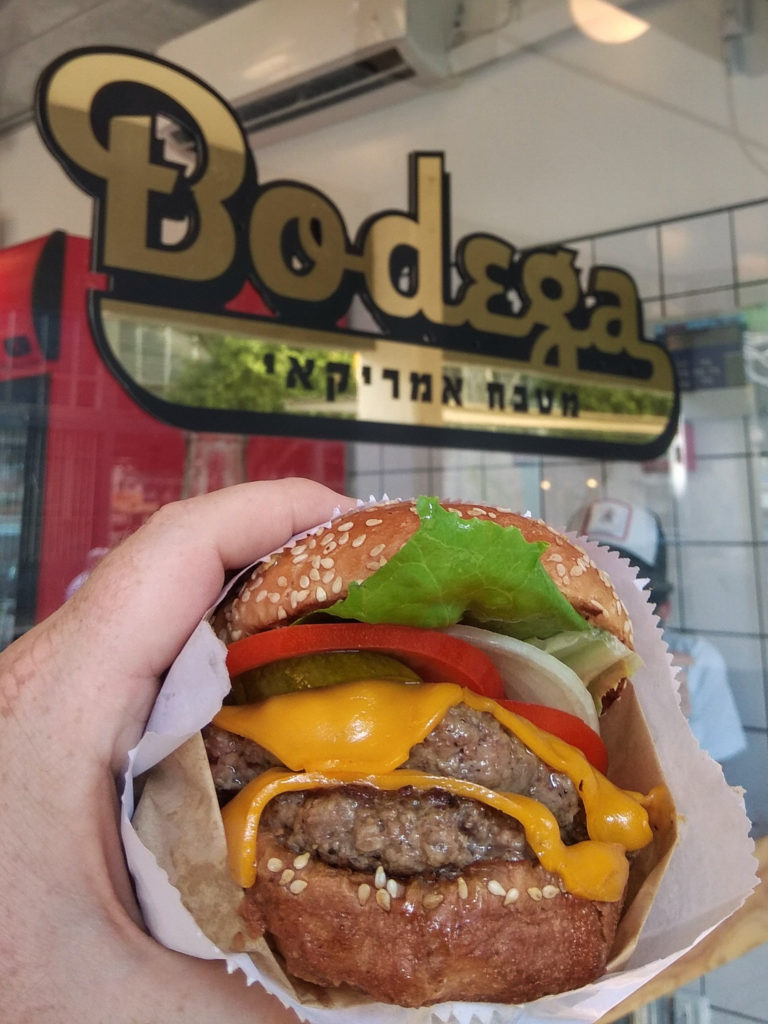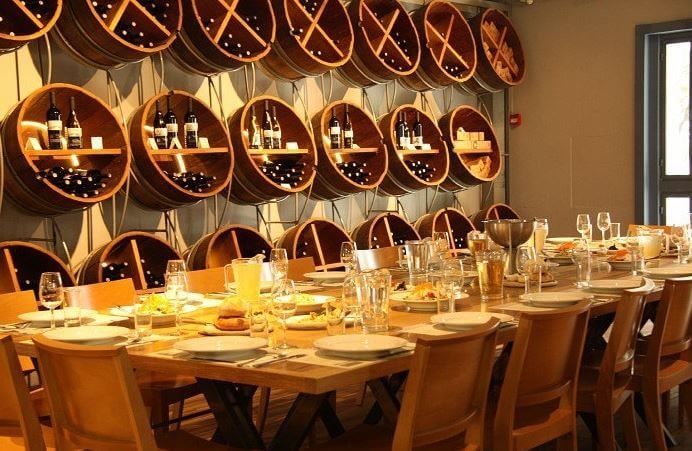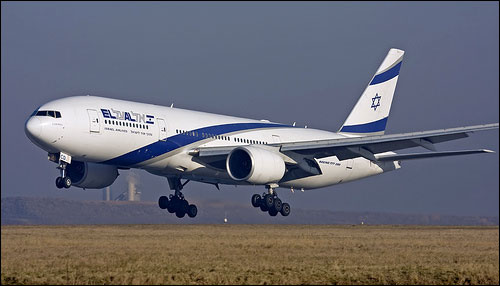
As travel to Israel slowly begins to open up, some may need a refresh on how to keep kosher in the holy land. To make it easy, this article lays out all the different kosher certifications you may encounter in Israel as well as understanding what some of the newer certifications are.
The kosher restaurant world in Israel is very diverse. To understand how it works we need to go back when the Rabbanut Harashit Leyisrael was founded in 1921 to give Jews who were immigrating to Israel from Europe, North Africa, the Middle East and the Americas, guidance on how to live a Jewish life in Israel. They opened beit dins, appointed dayanim, appointed chief rabbis and so on.
In 1981 the Rabbanut created its kashrut division and each local government opened up an office to give hechshers to the local restaurants and supermarkets in their cities.
According to the Israeli Supreme Court, today, if a restaurant wants to declare themselves as kosher, they must be under the supervision of the local Rabbanut and have an up-to-date kashrut certificate with an original stamp from the Rabbanut. This is very important to understand because sadly some restaurants will fake their kashrut certificate by either scanning and photoshopping one, or creating one, or making up their own excuses why they don’t have one.
Any legitimate kosher business will not hide their kashrut certificate; they will proudly show it and not have a problem if you call the mashgiach to ask if it’s legit. All of the mashgichim pass a test that the Rabbanut gives, and they are sent from the local Rabbanut office. They are certified to work as mashgichim around their jurisdiction.
Every Kosher establishment must have a basic Rabbanut certificate. Here is the list of kashrut types given by the local Rabbanut authority:
The Rabbanut Hechsherim:
- Local Kashrut from the local rabbanut, needs to be up to date with an original stamp
Then, there are a couple of cities where the local Rabbanut have added on hechsherim with government supervision. The cities are: Yerushalayim, Tiverya, Tzfat, Kiryat Gat, and Rechovot.
- Rabbanut Mihuderet: This is a local kashrut for Yerushalayim made by the local Rabbanut, which is the next level of kashrut, meaning all the meat is glatt but not Mehadrin, and bug free greens are purchased.
- Rabbanut Mehadrin: This can be offered by all kosher restaurants. All the meat is glatt, bishul Yisroel, greens are purchased bug free, and all products are Mehadrin.
- Rabbanut Mehadrin Min HaMehadrin is the highest level of the Rabbanut Kashrut.
After you get the base kashrut from the Rabbanut, a lot of businesses would like to up their kashrut levels with an additional hechsher from a private entity. The words Badatz and Mehadrin have become a title that means that their establishment has higher supervision standards than the Rabbanut. So what is the difference between the basic Rabbanut and a private Badatz Hechsher?
The difference between the private hechsher and the basic Rabbanut is: The mashgiach is there most of the time, all the meat has to be glatt and up, and bug free green leaves must be purchased by the restaurant.
Any Badatz Kashrut will not say the word “Kosher” on it. Only the words “under supervision.” That doesn’t take away from the extra hechsher that the Rabbanut provides such as the Rabbanut Mehuderet and Rabbanut Mehadrin.
Here are the names of the largest and most popular private Kashruyot in Israel:
- Badatz Beit Yosef (nickname: Beit Yosef) Run by the son of Rav Ovadya Yosef Zaktuzal, this is a Badatz hechsher mainly for the sefardic community.
- Badatz Yoreh Deah: (nickname: Harav Machpud) Run by Rav Shlomo Machpud Shlita, who is from Yemenite decendants. His kashrut is very mainstream by both Ashkenazi and the Sefardi Community.
- Badatz Mehadrin: (Nickname: Harav Rubin) Created my Rav Simcha Kook, it is run by Harav Avraham Rubin in the city of Rechovot and is now used by many restaurants and businesses around Israel.
- Badatz Eidah Chareidit: The largest and oldest Badatz Kashrut in Israel, Probably the highest form of Kashrut in Israel, mainly held by the ultra-orthodox community.
- Badatz Kehilos: Another high form of hechsher that is much newer and is accepted by most of the ultra-orthodox.
- Badatz Machzikey: Run by the Belz Chasidim, mainly accepted by the Belz community
Alternative Kashrut:
Now for the alternative Kashruyot. In the past couple of years there have been some small organizations who have started giving hechshers without permission or supervision of the Rabbanut. By law they cannot call what is on their certificate “Kosher” or have the words “Kosher Certificate” on it. If the certificate has those words on it, it is most likely fake kashrut.
The largest and growing alternative kashrut is called Tzohar. Started in 2018, Tzohar launched Kashrut Tzohar, a subsidiary of Tzohar where they supply their own line of mashgichim to restaurants around Israel. There are both men and women mashgichim that are fully employed by the restaurant owners so that they are on location full time.
Tzohar opened their kashrut division after another private organization, Hashgacha Pratit, shut down and merged into Tzohar. The head of Hashgacha Pratit, Rabbi Oren Duvduvani, is now the chief supervising rabbi for Tzohar.
There are a lot of restaurants that have been moving over to Tzohar because they prefer the way the mashgichim work by employing them themselves. All of the products that the restaurants and food business offers are kosher, but they are not under the supervision of the Rabbanut, thus unable to officially call itself kosher by Israeli law, although it is kosher by halachic standards. (i.e. this is literally “politics”)
Finally, below is a list of kashrut organizations that do not have a mashgiach and are not employed by the government:
- Badatz Nezer Hahidur
- Keter Hakashrut
- Nachalat Yitzchak
- Tiferet Yerushalayim
- Chomat Hakoshrot
- Mishmar Hakodesh-Shemen Hamishcha
- Mor Elivonah
>>> Click here to see certificate/logo examples of each hechsher listed above
The information in this article was compiled by Chef Yehudah Jacobs, founder of the Facebook Group “Israeli Foodies” the largest English-speaking foodies group in Israel. He is the Executive chef for the Yaya Jewish Heritage Tours where he travels around Europe and North Africa working with some of the world’s best chefs cooking kosher food for tour groups. Yehudah also offers private chef services in the country of your destination to provide all of your kosher needs when you are on vacation. When in Israel he provides his private chef services whether it’s a small event dairy or meat, cooking for Shabbat, or one of the many cooking workshops he teaches: Indoor BBQ Workshop, Spanish Fiesta Workshop, Morrocan Feast Workshop, and more.
Contact Chef Yehudah directly at +972526783656 @theisraelifoodie.





